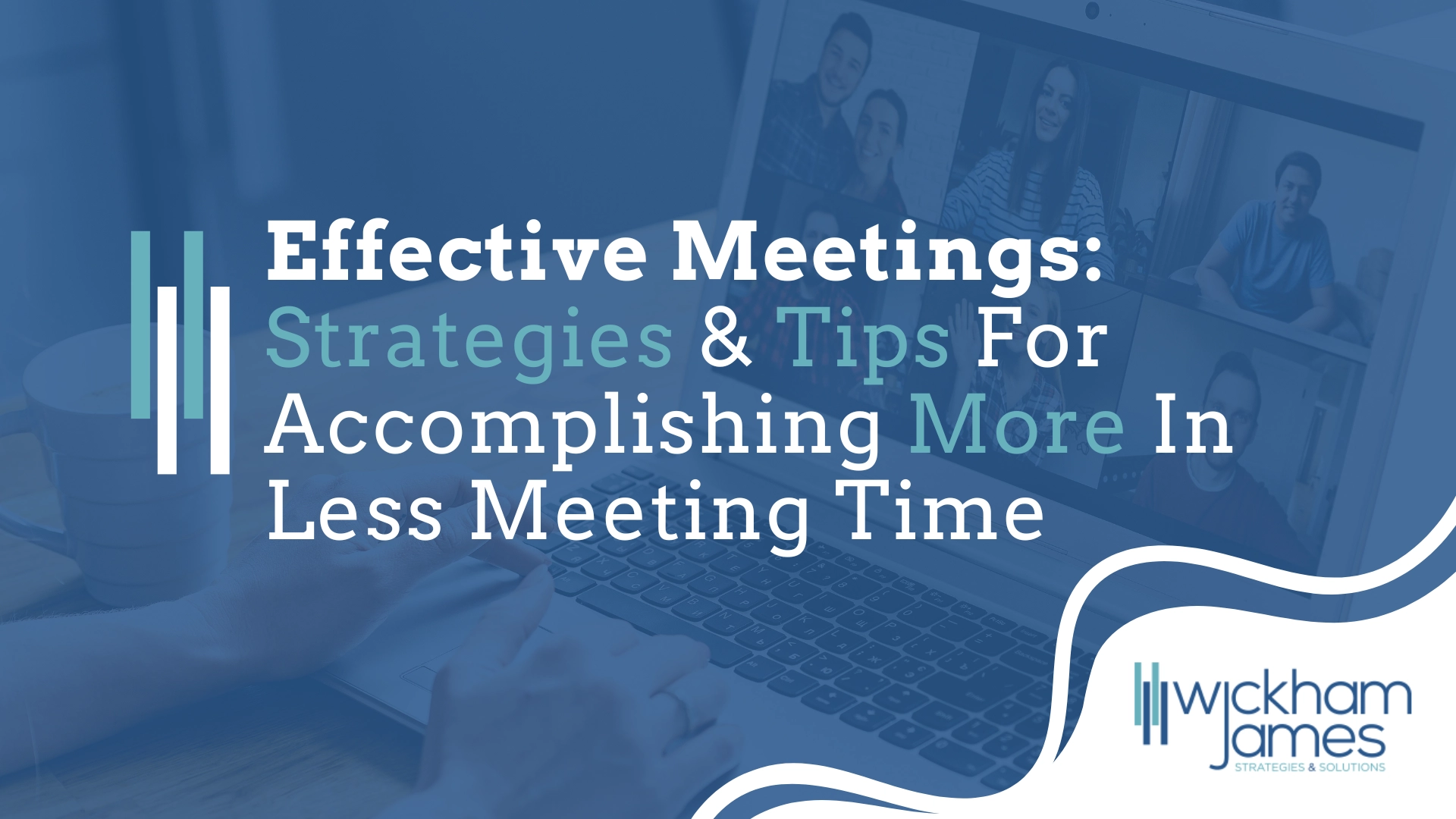
Meetings have changed dramatically for the workforce over the years, but whether in-person or online, they need to stay effective and timely for those participating. Meetings are a great way to encapsulate a lot of information into one short time period and allow people in your team to participate and engage in the topic at hand. If questions need to be answered, a meeting can be an effective way to hear everyone’s views.
However, there are times when meetings may seem less than efficient and bring more confusion or questions after the fact. If this is the case, it is time to reevaluate your meeting strategies and find ways to keep your team engaged, processing the information and utilizing it later in the workday. If your meetings are running too long or creating more obstacles than solutions, here are some strategies and tips for accomplishing more in less meeting time.
Prepare Beforehand
A significant reason a meeting may drag on or not answer the pertinent questions is that there was no proper preparation beforehand. Before scheduling a meeting on anyone’s calendar, it is essential to understand the what and why of the meeting. What is it pertaining to, and why are you holding it?
Without these answers, your meeting might seem confusing and unfocused to your team. You may also want to ensure that your team is familiar with the concepts you will be discussing and, if needed, email a recap of the last meeting. These can help you know that while you are preparing, so is your team.
Create a Meeting Agenda
When scheduling a meeting, it is essential to keep it purposeful. Creating a meeting agenda allows you to control better time management, talking points, and group discussions. An agenda can keep you on topic and ensure the meeting doesn’t drag longer than planned.
This agenda can also be sent to the team members joining the meeting. By doing this, you are giving your team the opportunity to come prepared with any questions or solutions they might have. This will save you time from a pause during the meeting when participants are asked if they have any questions or concerns.
Be Timely
Being late is the best way to ensure your meeting runs overtime. When you schedule a meeting, make sure that you are on time or even early to the meeting to ensure your planned agenda isn’t compromised and that your team has a good example to follow.
It is typical to schedule meetings for an hour or half an hour, and while these may seem short in a sense, it can be time to reevaluate if you genuinely need that much time to get all the information across. If a meeting is scheduled for an hour, it will more than likely take an hour. However, if you start to schedule meetings for 45 minutes or 15 minutes, you might begin to see that the same information is easily taught and engaged within a shorter amount of time. These shorter meetings force both you and your team to stay on topic throughout the entire meeting.
Assess Who Is There
While it is easy to check off everyone in the department to join the meeting, adding more and more people might cause longer meeting times and non-related topics to be brought up. In the end, the people who are directly affected by the information in the meeting should be the ones there. It can be useful to have everyone there, but unless they are a decision-maker on the topic, it can be easier to leave them out.
For the people you didn’t include, sending them the meeting notes with the opportunity to ask questions or bring up concerns can keep them integrated with the discussion and give them the chance to speak their minds.
End Meetings With a Purpose
Ending your meeting with the opportunity for questions can help stop the inevitable follow-up email or second meeting on the topic. Everything can be answered and addressed then and there in a timely manner and ensure the whole team is on the same page.
After questions, meetings should end with a clear plan of action. If your meeting was about raising sales numbers, your team should have a thought-out plan on how to raise their sales numbers for the next quarter. With plans in place, your team can leave motivated and ready to continue their workday more invigorated than before, meaning that you don’t need to schedule a second meeting on the topic and take more time away from the workday.
Meetings can vary between people’s favorite thing to least favorite thing, but no matter what, they should be informative, quick, and purposeful to those on your team. If you have any questions about running efficient meetings or becoming a stronger leader, contact Wickham James.




